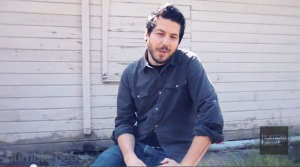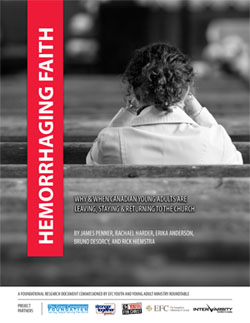A Bible study group I attended last night touched on some emotional nerves, as we talked through the end of Samson’s life.
I think that I react to what I perceive as glibness in the face of human suffering. If we’re talking about the story of Samson, we cannot ignore the fact that it ends with an act of terrorism, with profoundly disturbing similarities to the September 11 terrorist attacks. Here is a guy whose last act is one of religious vengeance: he knocks down two towers, killing himself and 3,000 other people.
I do not believe, I cannot believe, that Samson is to be in anyway respected or emulated.
And I guess I do find it worrying when we happily sit around splitting theological hairs about predestination and ignoring the horror of the passage that we are encountering. Maybe it’s because familiarity has dulled the human tragedy of the story? Maybe we say ‘it’s in the Bible, so it must be OK?’ Maybe we think that the point of the story is to give us a nice cozy life application for the week?
Or maybe we realise that if we looked too deeply, we’d have to acknowledge that the author of this story portrays God as being complicit in this massacre? And that’s not something that any of us are comfortable with, least of all me.
Some of our theologians deal with this by saying ‘yes, sure God can kill anyone he wants whenever he wants, and that’s fine.’
The first part of that sentence makes sense – if God is omnipotent, then of course he can.
The second implication in the sentence horrifies me. Because it tends to include the implication that we shouldn’t let this bother us. That to react emotionally to human death and suffering is somehow a sign of a weak faith.
If this is truly the case, then I don’t want that faith. I’d rather hold on to my humanity.
There are parallels with this and the unfortunate responses to grief that we’ve experienced occasionally. Some people think that if we can explain suffering, then we don’t need to console the grieving. That what the person suffering bereavement most needs is a helpful book explaining how their loss is all part of some bigger picture that they are unable to see.
This is, of course, callous in the extreme. A mourner doesn’t need an explanation. They need compassion. And they need someone to share their burden, not someone to tell them that it doesn’t exist.
Likewise on a larger scale. Faced with the horrors of genocide, of war, of sickness, of death, I don’t actually need or want someone to come along and say ‘yes, well, this is all perfectly OK because it fits neatly into my theological schema.’ I want someone to acknowledge the horror of what we are witnessing. I want a mourner, not a theologian.
I guess this is an easy trap to fall into. Preachers are taught that their job is to explain the passage. Here is a story of a man called Samson. Here is what happened in his life. Here is the background. Here is what other theologians have said about it. Here is what we can learn from the passage. Now we can go and have coffee.
But maybe that’s not the point? Maybe that’s not needed from the preacher? Maybe that’s not even the point of the story?
The art that we remember that comes out of atrocities is not abstract, clinical and structured. We remember Dulce et Decorum Est not because it gives a high level view of the political causes of the First World War or military strategy, but because it viscerally reveals to us the real experience of one individual caught up in the terror of a gas attack.
At that point the author, Wilfred Owen, is not telling us about the grand meaning of the conflict. He is telling us what it is like to see his companion fail to get his gas mask on before the poison chokes his lungs.
We rush to explanation too fast. We want to say that we have mastered the passage. What would happen if we were willing to say “huh. This is tough. This represents an ugly side of humanity. And maybe it even represents an ugly side of humanity’s concept of God.”
 More than once, Viking raiding parties attacked the island, and on one occasion, as the song lyrics above note, the monastic population of the island was massacred on the beach at Martyrs bay. A few years ago, I was fortunate enough to make my own pilgrimage to the island, and stand on the same beach that the martyrs died on, and that I heard sung about as a teenager.
More than once, Viking raiding parties attacked the island, and on one occasion, as the song lyrics above note, the monastic population of the island was massacred on the beach at Martyrs bay. A few years ago, I was fortunate enough to make my own pilgrimage to the island, and stand on the same beach that the martyrs died on, and that I heard sung about as a teenager.

